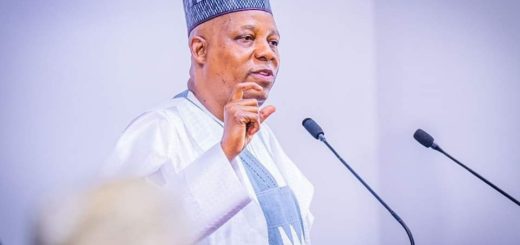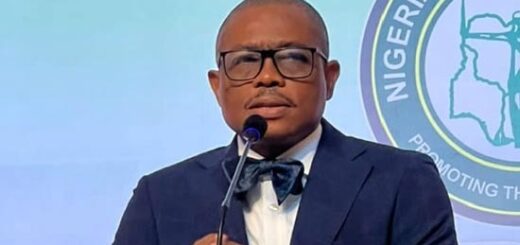1,000 Civil Society Groups Convene To Examine Implications Of Nigeria Tax Bill 2024
 The Situation Room, a coalition of 1,000 civil society groups, has announced a town hall meeting on December 1, 2024, to discuss the proposed Nigeria Tax Bill 2024.
The Situation Room, a coalition of 1,000 civil society groups, has announced a town hall meeting on December 1, 2024, to discuss the proposed Nigeria Tax Bill 2024.
The meeting, themed “Taxation in Nigeria: Issues, Challenges, and the Future,” aims to examine the bill’s provisions and implications.
President Bola Ahmed Tinubu recently transmitted the bill to the National Assembly, seeking to reshape Nigeria’s fiscal framework.
However, governors and traditional rulers of Northern Nigerian states have rejected the bill, citing inconsistencies with regional interests.
Key provisions include VAT increases, company income tax, development levies, and excise taxes.
In a statement signed by Dr. Vincent Ntui, the Executive Director of The Situation Room, the meeting will bring together scholars, civil society representatives, policymakers, and stakeholders to facilitate dialogue and ensure the bill serves Nigeria’s best interests.
Ntui added that The town hall meeting will adopt a civil society working document outlining concerns and recommendations for the National Assembly.
He emphasised the meeting’s importance in promoting transparency, accountability, and inclusivity in policymaking.
“We are proud to announce that the Situation Room, a coalition of 1,000 civil society groups across Nigeria, is set to convene a strategic town hall meeting on December 1, 2024, to discuss the proposed Nigeria Tax Bill 2024,”Ntiu sad.
“This meeting, themed ‘Taxation in Nigeria: Issues, Challenges, and the Future,’ aims to provide a platform for stakeholders to critically examine the bill’s provisions and their implications for the country.
“The proposed bill, recently transmitted to the National Assembly by President Bola Ahmed Tinubu, seeks to reshape Nigeria’s fiscal framework and establish a comprehensive legal framework governing taxation of incomes, transactions, and instruments.
“However, it has generated concerns from various quarters, including governors and traditional rulers of Northern Nigerian states, who have rejected the bill, citing its inconsistency with the interests of the North and other sub-national entities.
“Key provisions of the bill include an increase in Value Added Tax (VAT) from 7.5% to 10% by 2025, with further increases to 12.5% from 2026 to 2029, and 15% from 2030 onwards.
“The bill also proposes a 27.5% company income tax for companies with aggregate turnover exceeding N20 billion, a 4% development levy on assessable profits of companies, and a 5% excise tax on lottery and gaming income, as well as telecommunications services.
“The town hall meeting will bring together renowned scholars and experts in taxation and economic policy, representatives of civil society groups and organizations, and policymakers and stakeholders from the National Assembly and relevant government agencies.
“The meeting aims to facilitate dialogue among stakeholders and provide a platform for civil society groups to contribute to the policymaking process.
“The importance of this meeting is crucial for civil society groups to engage with policymakers and stakeholders to ensure that the tax bill serves the best interests of the Nigerian people.”
“The meeting will also feature the adoption of a civil society working document to be presented to the National Assembly. This document will outline the key concerns and recommendations of civil society groups regarding the tax bill.
“These groups have been actively engaged in advocating for policies that promote social justice, human rights, and economic development in Nigeria.
“The town hall meeting is expected to provide a unique opportunity for stakeholders to engage in constructive dialogue and find common ground on the tax bill.
“By bringing together diverse stakeholders, The Situation Room aims to promote transparency, accountability, and inclusivity in the policymaking process.
“The outcome of the meeting will inform the National Assembly’s deliberations on the tax bill and ensure that the final legislation reflects the needs and aspirations of the Nigerian people.
“As the country navigates the complexities of tax reform, the contributions of civil society groups will be crucial in shaping a more equitable and sustainable fiscal framework for Nigeria.”













